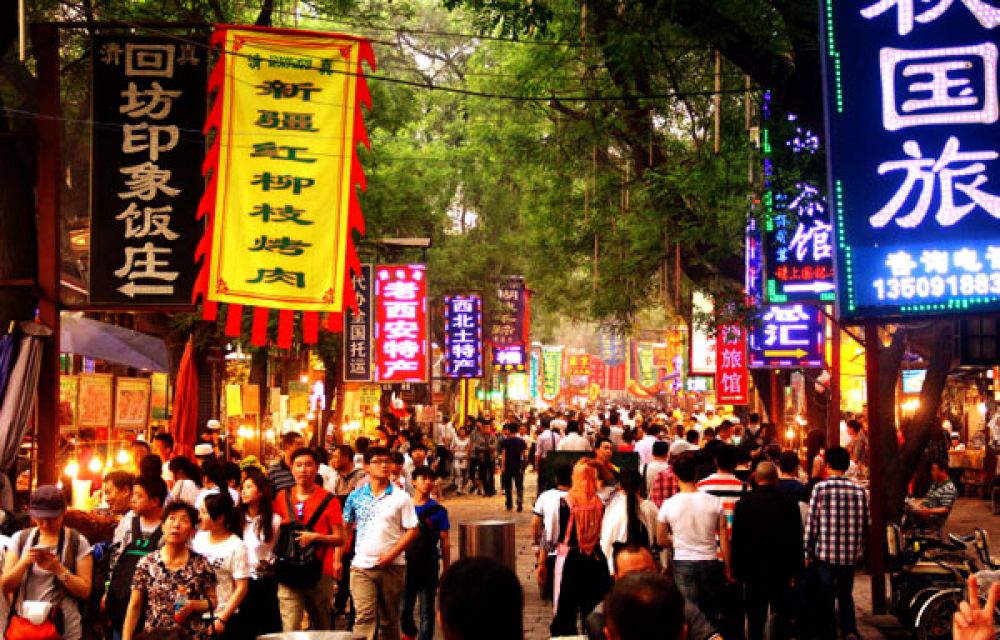

The Muslim Quarter of Xi'an, known as the hub of the Hui community in Xi'an, has a rich and vibrant history that goes back over a millennium. The area's historical significance is deeply connected to the Silk Road—an ancient network of trade routes that facilitated economic, cultural, and religious exchanges between the East and the West.
The Muslim Quarter's story began with the arrival of Muslim traders and settlers during the Tang Dynasty (618-907 AD). These settlers were instrumental in fostering a cultural melange, which led to the harmonious blend of Chinese and Islamic influences witnessed today in the architecture, food, and traditions of the Quarter.
Tourism in the Muslim Quarter has been blooming since the 20th century, with the advent of China's open-door policies and Xi'an being recognized as a starting point of the Silk Road. The area's charm lies not only in its culinary delights but also in its historical relics such as the Great Mosque of Xi'an, which dates back to the Tang Dynasty and captivates visitors with its fusion of Chinese-Islamic architecture.
The market streets, famously bustling with vibrant stalls and food joints, attract visitors seeking an authentic taste of Xi'an's street food scene. The Quarter's atmosphere during evenings is particularly appealing to tourists looking for a blend of historical experience and lively street culture.
Recently, the area has seen a shift in tourist trends with a growing interest in cultural and experiential travel. Tourists are now engaging more with the local community, learning about the history and culture directly from residents. Small group tours and guided walks focusing on the Quarter's heritage and culinary experiences have gained popularity.
With increasing recognition of the importance of sustainable tourism, efforts to preserve the unique cultural heritage and local environment of the Muslim Quarter are in place. There is a push towards ensuring that tourism development does not come at the expense of local traditions and the Quarter’s historical integrity.
The COVID-19 pandemic has had a significant impact on tourism globally, and the Muslim Quarter has been no exception. However, with the situation gradually coming under control, the area is once again setting its sights on welcoming tourists. Looking towards the future, the emphasis is on promoting responsible tourism that appreciates and sustains the Quarter's unique cultural identity for generations to come.